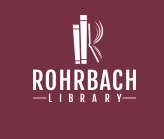Document Type
Research paper
Publication Date
4-10-2021
Abstract
From mid-May through August 2020 the author designed, built, revised, and analyzed resulting data from two simulation programs for virtual contact tracing of COVID-19 infection propagation at Kutztown University in the fall 2020 semester. The first was command-line driven and non-graphical, with results distributed to faculty and administrators on May 28. The second was a three-dimensional interactive graphical simulation, distributed to faculty, administrators, and the public as a narrated video via YouTube on July 16. The algorithm is an adaptation of spreading activation as used in theoretical psychology and artificial intelligence research since the 1970s. It propagates discrete, probable infections across a graph connecting face-to-face classes, tagging attending student and faculty members to the edges. The simulation is a state machine, advancing probable infections using a one-week time step and collecting resulting data at the end of each week. It uses class rosters to construct the graph, established parameters for COVID-19 propagation and risk, and student town party size and frequency measures based on interviews with local police and residents. Despite lower-than predicted employee infections in reported fall data, overall infections meet its predictions, indicating a higher infection rate and percentage of careless or unlucky students than initially assumed.
Creative Commons License

This work is licensed under a Creative Commons Attribution 4.0 International License.
Recommended Citation
Proceedings of the 36th Annual Spring Conference of the Pennsylvania Computer and Information Science Educators (PACISE) Slippery Rock University of PA, Slippery Rock, PA, April 9-10, 2021, on-line conference & proceedings during covid-19 pandemic.



Comments
This paper won the Best Faculty Paper Award at PACISE 2021.
Slides from the April 10, 2021 conference presentation appear at https://drive.google.com/file/d/12qO2W3oNkwcKqpj3UgEsa7898wzixNfs/view?usp=sharing